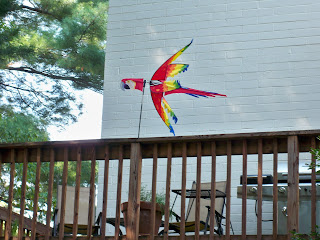
Sometimes when I have a free moment I browse the pages of
The Footpaths of Britain by Michael Marriott. It's an old tome I picked up for a dollar at a library book sale and worth a hundred times that amount. It has sentences like this: "In many respects, indeed, the Ridgeway is the best route for aspiring distance-walkers wondering where best to open their account." Or this: "The Pennine Way, the first of Britain's long-distance paths and still claimed by many as the toughest, grandest and most romantic of them all." How can you fail to write lyrically when your country has place names like the Forest of Bowland, North Wessex Downs or Edenhope Hill?
Illustrated with mostly black-and-white and the occasional stunning color photograph,
The Footpaths of Britain is charmingly out of date, with a chapter on equipment that long predates today's pricey synthetic fabrics. Of course, this only makes me like the book more.
In short, it makes me want to travel, to hoist a pack on my back and take to the hills. But more than that, it reaffirms why I write about walking. This is from the foreword by John Hillaby: "Walking is a way of reviving a very old way of life once shared by mendicant friars, beggars, bards, pilgrims and traveling artisans. As Henry James remarked, landscape is character and walking — which is a form of touching — is like making love to the landscape and letting it return that love throughout your whole body. ... Long-distance walking, I maintain, is a fine art..."
Labels: walking


























